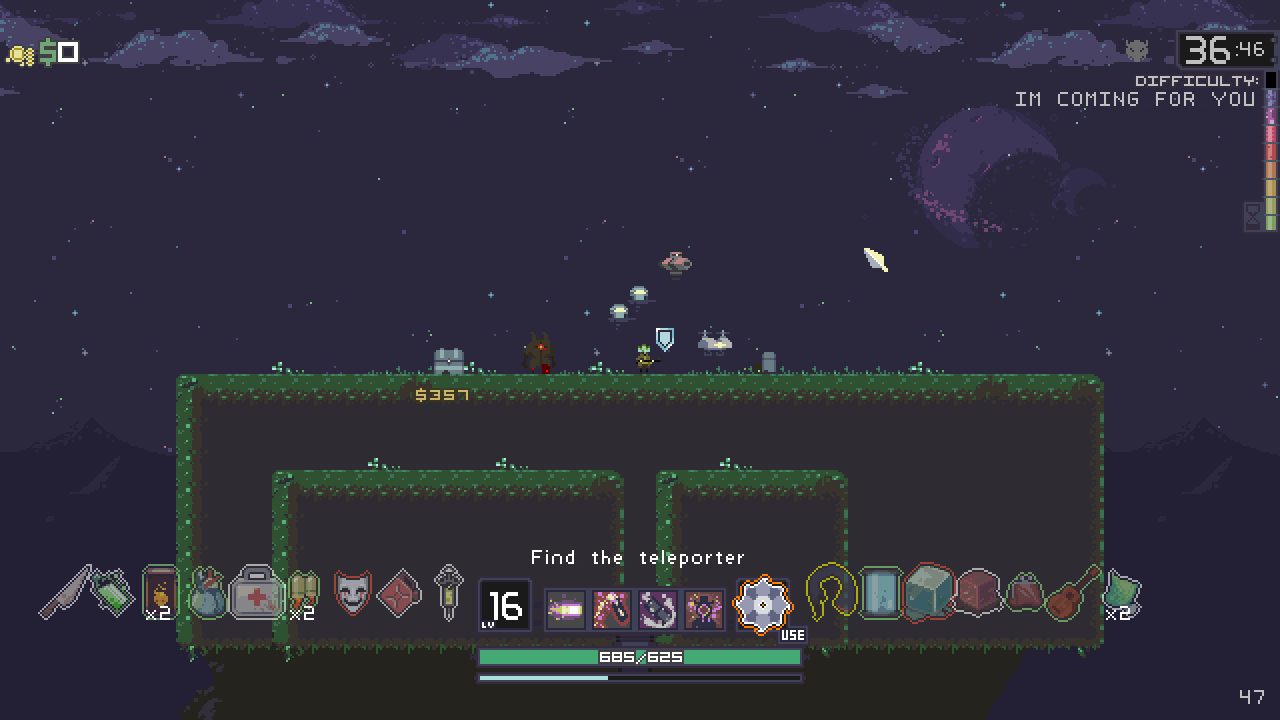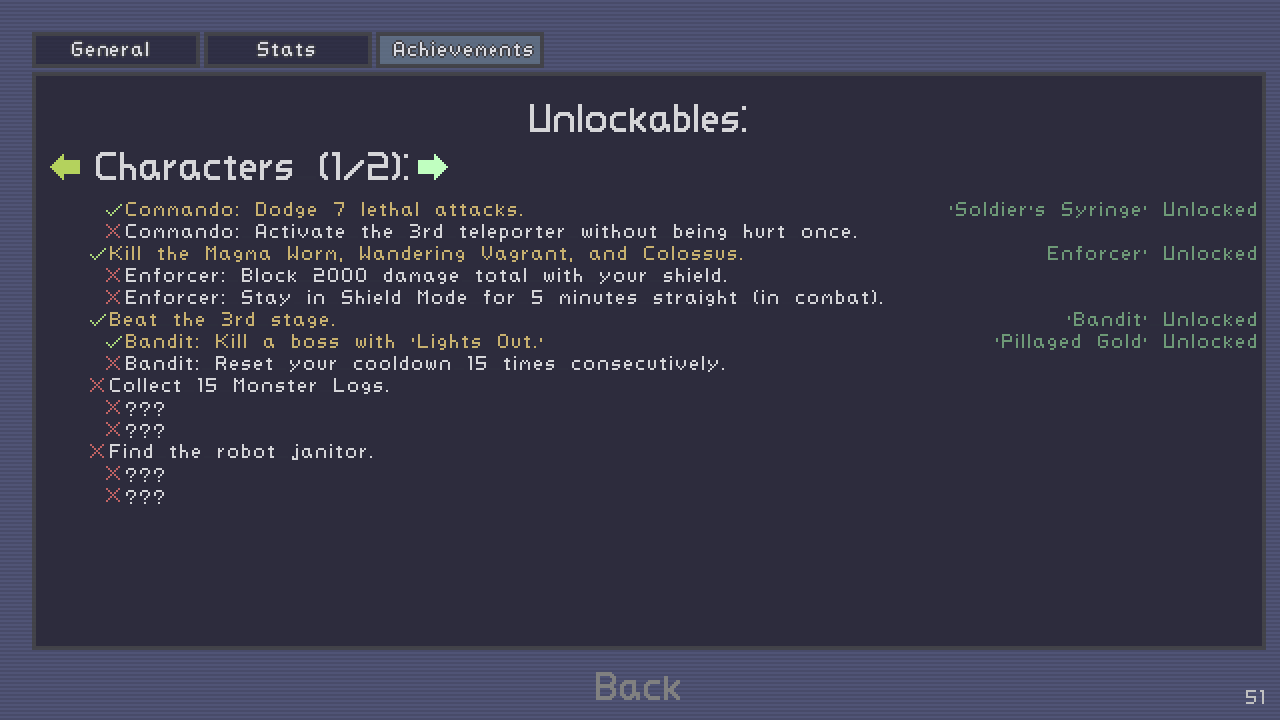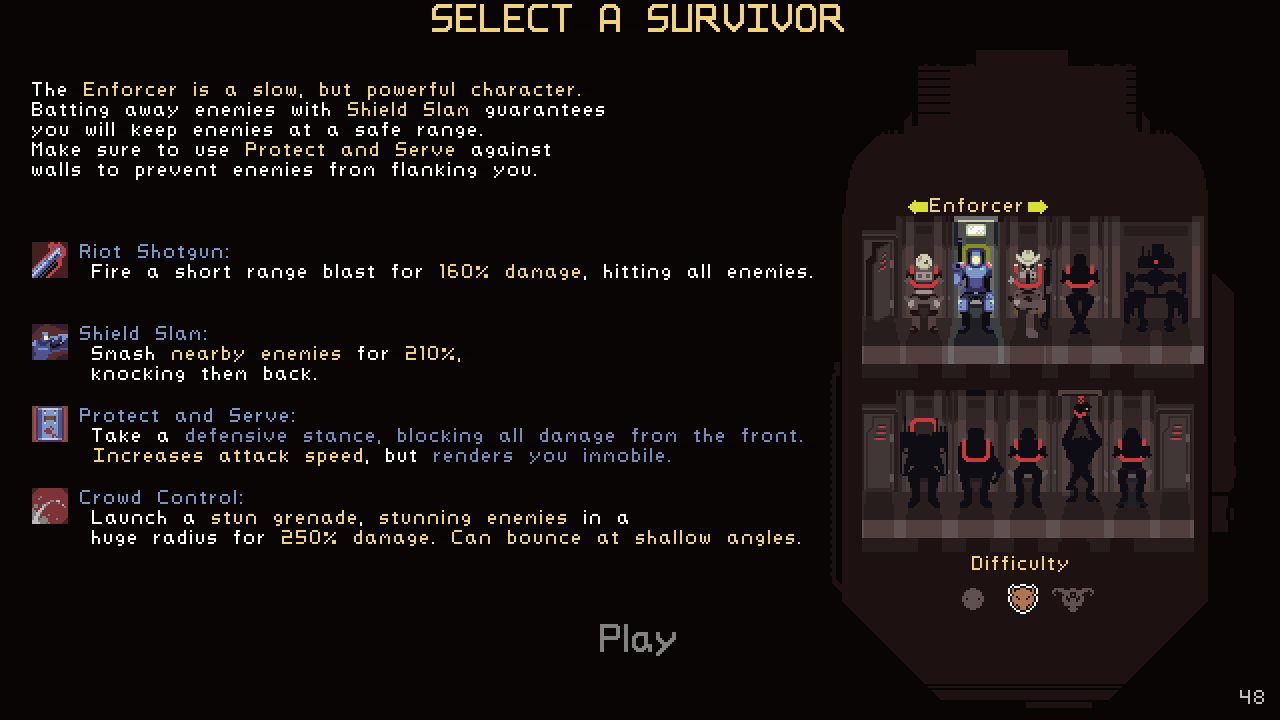One of the most famous deckbuilding roguelikes, Slay the Spire wasn’t a game I had played in the past until very recently. For my enjoyment of RPG mechanics and card games, I’m not really into deckbuilding (it might be because long term planning of strategies when combined with luck-based factors doesn’t scratch my itch) and roguelikes aren’t my cup of tea either, but I still gave it a shot. It might be reductive, but I feel like anytime someone announces a “deckbuilding roguelike” I know exactly what I’m getting into. Slay the Spire did just that, for better or worse.
Sometimes I look at a game in my backlog that I wanted to review at some point and think “huh, this is neat, but a bit light on mechanics” or “this feels somehow outdated”, I’m not having a bad time per se, but I feel like other games have expanded on these mechanics so much that playing a “leaner” version is almost quaint. Then I realize the game in question released in 2014. Hand of Fate is a roguelike where you create an adventure by drawing cards, fight through enemies and get new cards to find new experiences the next time you get a new run going. It’s fun, but almost quaint in its simplicity.
Book of Demons is a pretty neat roguelike heavily inspired by Diablo 1 with a paper / card aesthetic that I really enjoyed where you must go to the bowels of a dungeon to defeat a big devil. Choosing from three classes with a bevy of items and skills, you click away to walk on predefined paths, dodge attacks, perform small minigame-like tasks to overcome enemies, come back to town to cash in rewards, and restart that loop until the end.
Griftlands is a pretty meat roguelike deck-builder RPG where you adventure across a small part of the world, completing quests, negotiating, fighting, improving your abilities while trying to defeat a powerful boss at the end of a few in-game days while unlocking new cards for your next runs whether you fail or succeed. I had a really good time with it, even tho this kind of game isn’t entirely my cup of tea.
Dawncaster is an amazing deckbuilding roguelike where you fight monsters and build your character using a ton of different cards, powers and strategies. It’s the kind of game that really sucked me in and I would still be playing it right now if I didn’t feel like I had to try other games constantly. I had a great time with it and the sheer amount of content to unlock and ideas to test out makes the purchase completely worth it. Being a premium title, there are no ads or annoying microtransactions as well, another great plus in my book!
Loop Hero is a really neat roguelike that has you automatically loop around a track, fighting monsters, collecting gear and items and placing cards around the map to create forests, villages, deserts and rivers, all in order to help - and sometimes hinder - your hero get strong enough to defeat the boss of the level. With a really interesting art style, good music and some nice progression elements, I really enjoyed what I played of Loop Hero even if my interest for the game fell off near the end and I couldn’t get past the last bumps in difficulty.
Shattered Planet is a neat roguelike about exploring procedurally generated planets slowly succombing to a dark plague while fighting enemies, collecting loot and trying to survive while unlocking - and upgrading - new characters, discovering enemies, gear and events. I had a good time with it! I kinda wish it did more than what it does, but what is there is fun, addictive and still fun to play, even though it was released in 2014.
Moon Hunters is a neat story-focused roguelike action RPG where you investigate the mysterious disappearance of the moon, potentially with three of your friends, by battling monsters, buying upgrades and making decisions by talking to NPCs and increasing certain traits that allow you different actions later on. The core of the game is fairly short - I could finish most runs in an hour - but I kinda wish it could’ve went by quicker. The good bits were really everything related to NPC interactions - and the upgrades and RPG mechanics were quite nice as well - but the battle and exploration of the world was a bit tedious (and made up the bulk of the game, so it kinda became a problem after a while).
I wasn’t really sure what I was getting into with Invisible Inc. On one hand, the game promised a deep tapestry of lore and intrigue set in a futuristic world ruled by corporations and filled with hackers, military drones and assassins while on the other claiming to be a roguelike where you would lose constantly, crushed by the might of the corporations before you would finally have enough characters, skills and AI programs to finally win by the skin of your teeth. I’m not sure I got either of these because my first playthrough went pretty well, didn’t take that long and I still managed to win, uploading my AI into the corporation’s server. The game kinda expected me to retry on a harder difficulty, but I was left wanting for a reason to do so; Either from a gameplay or story perspective, I felt I was done with Invisible Inc. after that run.
Starward Rogue is a bullet hell action RPG roguelike where you move in procedurally generated levels, fighting enemies, gathering keys, power-ups, money and items all in service of getting to the final boss, defeating complex foes with hellish projectile patterns, and get stronger in the process. I enjoyed it quite a bit, but I feel like the roguelike elements have been wasted for a game that feels completed when you finish it for the first time.
I Keep Having This Dream is a delightful little game that I would keep playing to completion if my plate wasn't already full as-is with other games to look at. It's a roguelike puzzle game where you place tiles in order to get to the exit of a series of increasingly difficult levels while followed by an entity called The Nemesis. You level up and find new gear, you unlock new enemies and new events to hinder and help you and you try to get as far as you can. It's great!
Crypt of the NecroDancer is a delightful rhythm-based roguelike. I had a ton of fun with it, but I couldn't make it very far. The loop of constantly dying and restarting over a bit stronger kept me going for a good while and I'd recommend this original game to a wide range of players, from both the side of rhythm enthusiasts and roguelike fanatics. I had some issue with the controls and still had issues with the difficulty at the end, but these are minor flaws in face of the positive things I have to say about it.
I'm a big Puzzle Quest fan, but I can't say that I enjoy roguelikes - or the FTL model - very much. This made my relationship with Ironcast a bittersweet one; Some of its core mechanics are pretty fun, others are kinda infuriating, and there's this inevitability aspect that stresses you in time and reduces the number of actions you can do in a set game that leaves some of the fun aspects of match-3 RPGs behind.
Don't Starve is a survival game where you spawn in a new world every time and you need to gather materials, fight creatures and craft new things in order to progress through the various technologies and magics, all in the name of not being killed and not dying of starvation. Depending of how the world starts, you might be able to quickly get gold and get right along with the science machine - or you might be stuck between tombstones and spiders and die.
FTL: Faster Than Light is a great space-themed roguelike. The core mechanics are pretty great even adapted for the iPad. From moving around the galaxy to fighting enemy vessels, there is much to do and many tries need to be taken in order to get to the end, more so to defeat the last boss
Coin Crypt is quite weird, it’s one of these games where your main resource isn’t something you’d usually expect to use as-is. In Coin Crypt, your special moves and your money are one and the same, you fight with coins that you collect in chests and on enemies. I’ve been a bit confused with it, and the lack of help on some systems made me not use them, but I had some fun with it, especially after I’ve figured it out.
Out There is a brutal space adventure game where you are an astronaut in a spaceship and you need to go at the bottom right of the map. To do so, you spend fuel, oxygen, break your spaceship instruments, find alien planets, make decisions, spend fuel, salvage something for precious iron, spend fuel, then drift endlessly in space. I enjoyed it, even if I couldn’t make it very far.
Risk of Rain has great core gameplay mechanics. It's a platformer/roguelike where you pick a character then need to find teleporters to get back to your ship without dying. There are tons of items you can randomly find during your journey, each class has different abilities, there are tons of unlockables / challenges, the game is pretty difficult but rewarding and I really love its style. It has, however, a fatal design flaw.
A bit like King Cashing, Tower of Fortune is a game based on slot machines. You explore maps by spinning slots, you fight enemies that way, you collect loot, forge items and interact with the tavern by pressing a 'SPIN' button. The comparison stops there, though. While King Cashing was a fun RPG, this game is a brutal roguelike and dying means having to start all over (except if you bought a thing that saves your equipment when you die) and the game kinda feels unfair at times.
I didn't "get" 868-Hack, a popular videogame where you datajack into the cell cubes to decrypt pointfiles while cyberdodging viruses and shooting them with your datagun. This feels like a roguelike, this feels like a small thing with no rhyme or reason. I can't say I've enjoyed 868-Hack much because I've failed miserably to progress past the first few screens and some mechanics are still incomprehensible to me.
















